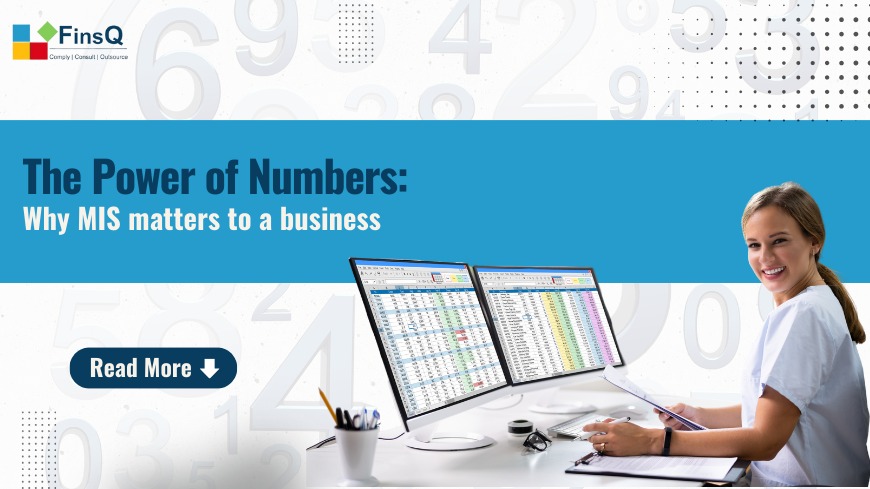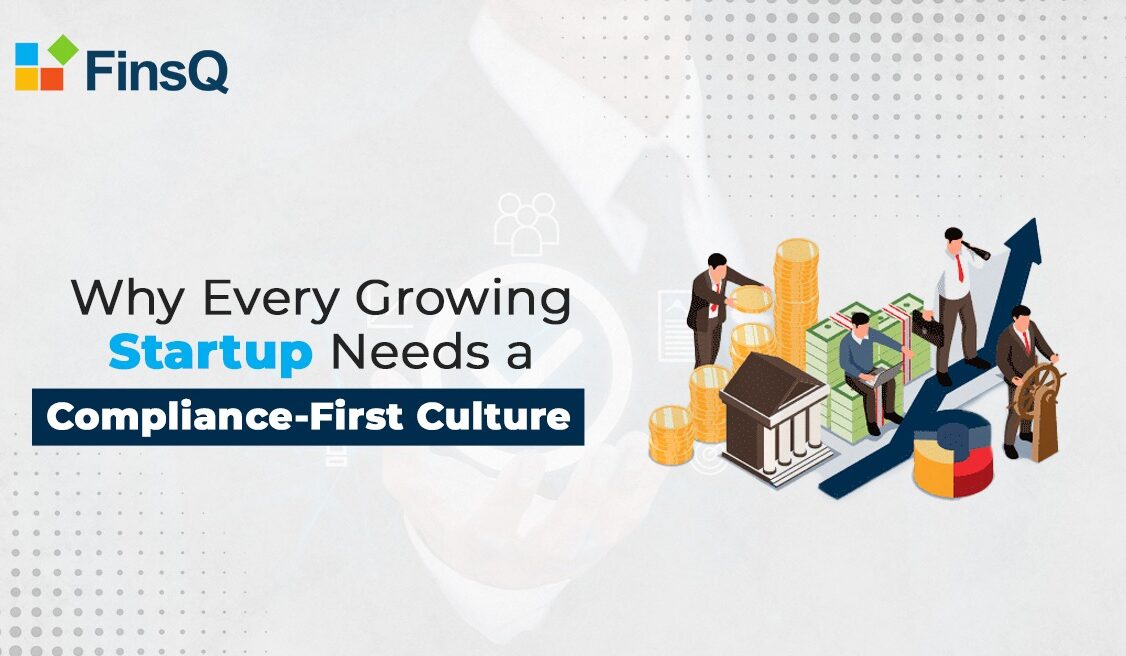In the fast-paced, data-driven world of business, the ability to make informed decisions is the key to success. But what drives those decisions? The answer lies in the numbers. Enter Management Information Systems (MIS) – the unsung hero that can transform raw data into actionable insights. For businesses today, MIS is not just about tracking numbers; it’s about understanding them, interpreting trends, and making strategic decisions that fuel growth.
At FinsQ, we specialize in providing virtual CFO services to businesses of all sizes. Our mission is to help companies navigate financial complexities and unlock their full potential. One of the essential tools we use to empower our clients is MIS, and here’s why it should matter to every business owner, regardless of industry or size.
1) The Backbone of Strategic Decision-Making
In the old days, businesses made decisions based on gut feeling or intuition. But in today’s competitive environment, relying on instinct alone is a risky proposition. MIS provides a structured approach to decision-making by offering data-driven insights.
Why does this matter?
- Real-Time Insights: MIS allows businesses to access real-time data, whether it’s cash flow, sales, or inventory, ensuring that decisions are based on the most current information available.
- Data-Driven Strategy: With access to critical financial data, business owners can set clearer goals, define their strategies, and measure progress accurately.
Case Study:
Consider a retail client we helped at FinsQ. The business was struggling to forecast its inventory needs, leading to stockouts and overstocking. By implementing an effective MIS, we provided them with insights into inventory turnover rates, sales patterns, and seasonal trends. As a result, the business optimized its inventory management and improved profitability by 15% in just one quarter.
2) Improved Financial Control and Cash Flow Management
Cash flow is often the lifeblood of a business, but many businesses struggle with cash flow management. Without proper visibility into the inflow and outflow of funds, it’s easy to miss crucial red flags that could jeopardize financial stability.
How does MIS help?
- Cash Flow Monitoring: MIS tracks cash flow in real-time, providing businesses with the visibility they need to manage liquidity and avoid potential cash crunches.
- Expense Tracking: An effective MIS system also tracks all business expenses, categorizing them by department or project. This allows you to identify areas where costs can be trimmed or optimized.
Example:
A SaaS company we work with at FinsQ was facing cash flow issues due to delayed client payments and excessive operational costs. Through a customized MIS, we provided a clear picture of their receivables and expenditures, allowing them to implement tighter controls over cash flow. Within months, they improved cash reserves and stabilized their operations.
3) Faster and More Accurate Reporting
Manual reports are often time-consuming, error-prone, and outdated by the time they reach key decision-makers. This delay can cost businesses valuable opportunities. MIS ensures that reporting is automated, accurate, and accessible to the leadership team in real-time.
What’s the impact?
- Real-Time Reports: With MIS, businesses can generate real-time financial reports, including P&L statements, balance sheets, and cash flow summaries, allowing quick and informed decision-making.
- Accurate Forecasting: MIS helps businesses track financial performance over time and create accurate forecasts, helping you plan for the future with confidence.
Case Study:
A manufacturing client of ours struggled with delayed monthly reporting. The process was manual and error-prone, which resulted in inefficiencies. After implementing an MIS system, we automated their reporting process, cutting down the time spent on generating reports by 50%. This gave management timely access to crucial financial insights and improved overall business agility.
4) Monitoring Key Performance Indicators (KPIs)
Every business has its unique set of KPIs—whether it’s revenue growth, customer acquisition cost, or inventory turnover. MIS provides a centralized platform to track these metrics in real-time and ensures businesses are aligned with their strategic objectives.
Why is this important?
- Alignment with Goals: By regularly monitoring KPIs, businesses can quickly identify whether they are on track to meet their goals or if corrective action is needed.
- Data-Driven Performance: With data insights on KPIs, businesses can identify trends, spot opportunities, and refine strategies to optimize performance.
Real-World Example:
A client in the e-commerce industry partnered with us to improve customer acquisition. By tracking KPIs like customer lifetime value, return on ad spend, and churn rate, we provided data that helped the business refine its marketing strategy. This led to a 25% increase in conversion rates and a reduction in customer acquisition costs by 18%.
5) Enhanced Decision-Making in Uncertain Times
The business world is more volatile than ever. Global pandemics, economic downturns, or supply chain disruptions can quickly throw a company off course. The ability to make quick, informed decisions in times of uncertainty can mean the difference between survival and success.
How MIS helps in uncertainty:
- Scenario Planning: MIS allows businesses to run different financial scenarios (best-case, worst-case, most likely) and evaluate potential outcomes, helping them prepare for various contingencies.
- Agility and Adaptability: With real-time data at their fingertips, businesses can pivot faster when needed, making necessary adjustments to operations, pricing strategies, or inventory management.
Case Study:
During the COVID-19 pandemic, one of our clients, a hospitality business, was facing severe disruptions. By leveraging the insights from their MIS, we were able to assess the financial impact of different scenarios (e.g., full lockdown, partial reopening) and help them plan accordingly. This strategic approach helped them mitigate losses and adapt quickly when the situation improved.
6) Improved Collaboration Across Departments
In many organizations, finance, sales, marketing, and operations are siloed departments, often leading to misalignment and inefficient workflows. MIS breaks down these silos by providing a centralized system that integrates data from different departments, leading to better collaboration and more cohesive decision-making.
What’s the benefit?
- Unified Data: MIS brings all the critical business data together in one platform, making it accessible to all key stakeholders.
- Cross-Department Visibility: With integrated data, departments can better collaborate, share insights, and work toward common business goals.
7) Regulatory Compliance and Risk Management
Businesses today must comply with a host of local and global regulations. Ensuring that financial and operational practices are compliant can be challenging, especially for businesses that operate in multiple jurisdictions.
How MIS can help?
- Regulatory Tracking: MIS helps businesses stay updated on compliance requirements by tracking tax laws, financial regulations, and reporting obligations.
- Risk Mitigation: By offering a comprehensive overview of business performance, MIS helps identify potential risks, such as cash flow issues, uncollected debts, or operational inefficiencies, allowing businesses to take corrective measures in time.
Example:
A client in the financial services industry had to adhere to stringent regulatory standards. With a robust MIS system in place, we helped them streamline their compliance reporting and reduce audit-related risks by 40%, ensuring that they met all regulatory deadlines and requirements.
8) The Future of MIS: AI and Predictive Analytics
The future of MIS is evolving, with Artificial Intelligence (AI) and Predictive Analytics playing an increasingly important role. These technologies can take MIS to the next level by not only providing current data but also forecasting future trends, potential risks, and opportunities.
What’s next?
- AI-Powered Insights: AI can analyze historical data and predict future business trends, giving companies a competitive edge.
- Predictive Analytics: This allows businesses to forecast demand, optimize inventory, and manage resources more efficiently.
Conclusion: Embrace the Power of Numbers
At FinsQ, we believe that numbers are more than just figures on a balance sheet—they are the key to unlocking business growth. By leveraging Management Information Systems (MIS), businesses can make smarter decisions, optimize their financials, and stay ahead of the competition. Whether you’re looking to improve cash flow, track KPIs, or plan for the future, MIS is your strategic partner.
As a virtual CFO service provider, our role is to help you implement and maximize the use of MIS, ensuring your business is empowered with the right insights at the right time. In a world where data is king, it’s time to harness the full potential of your numbers—because when you understand the power of numbers, success follows.
Let’s unlock that potential together. Reach out to FinsQ today to see how we can transform your business with the power of MIS.







